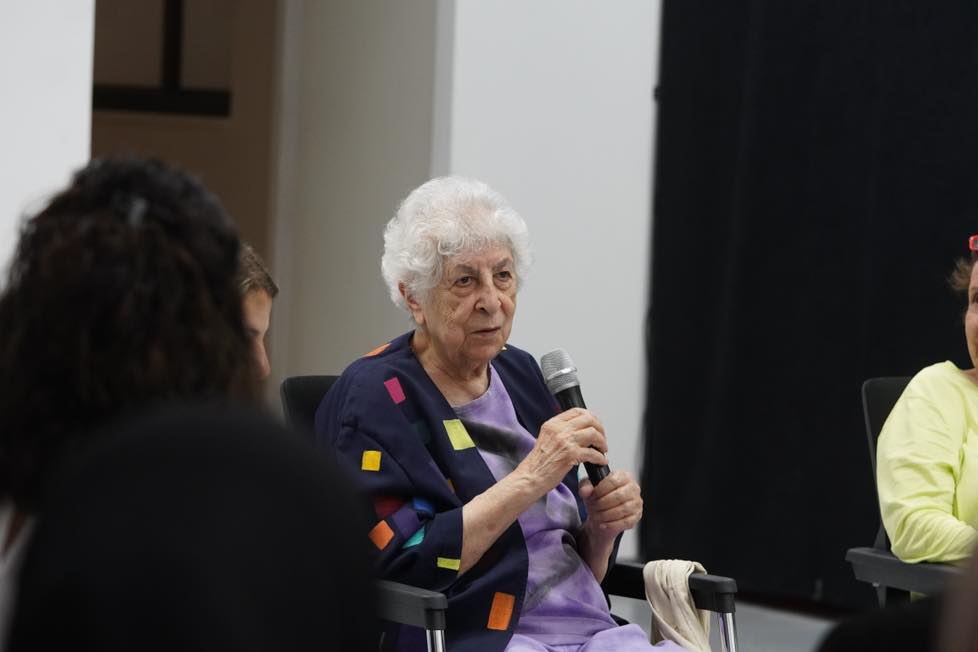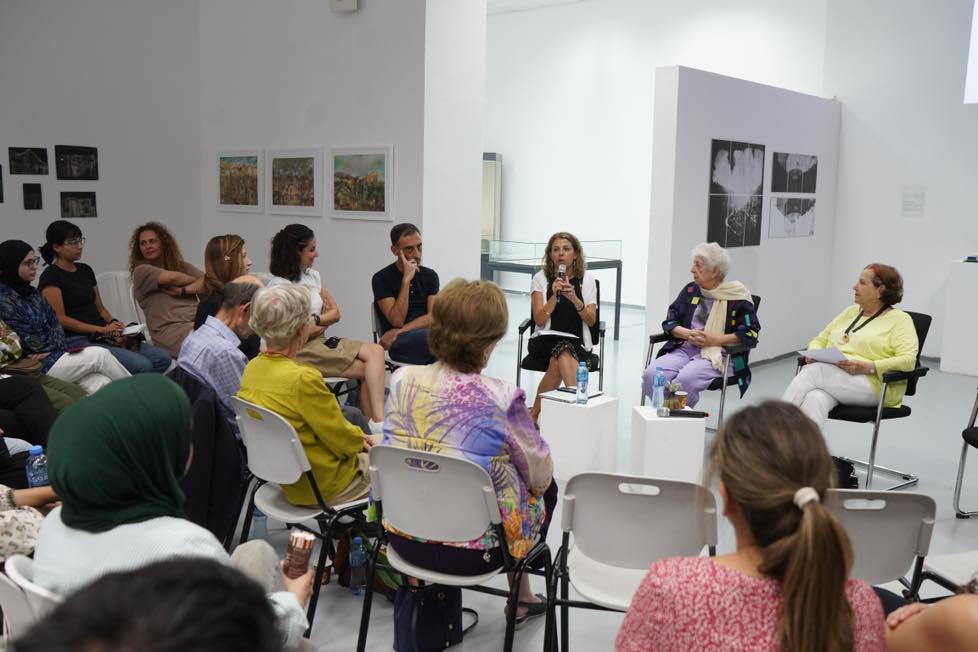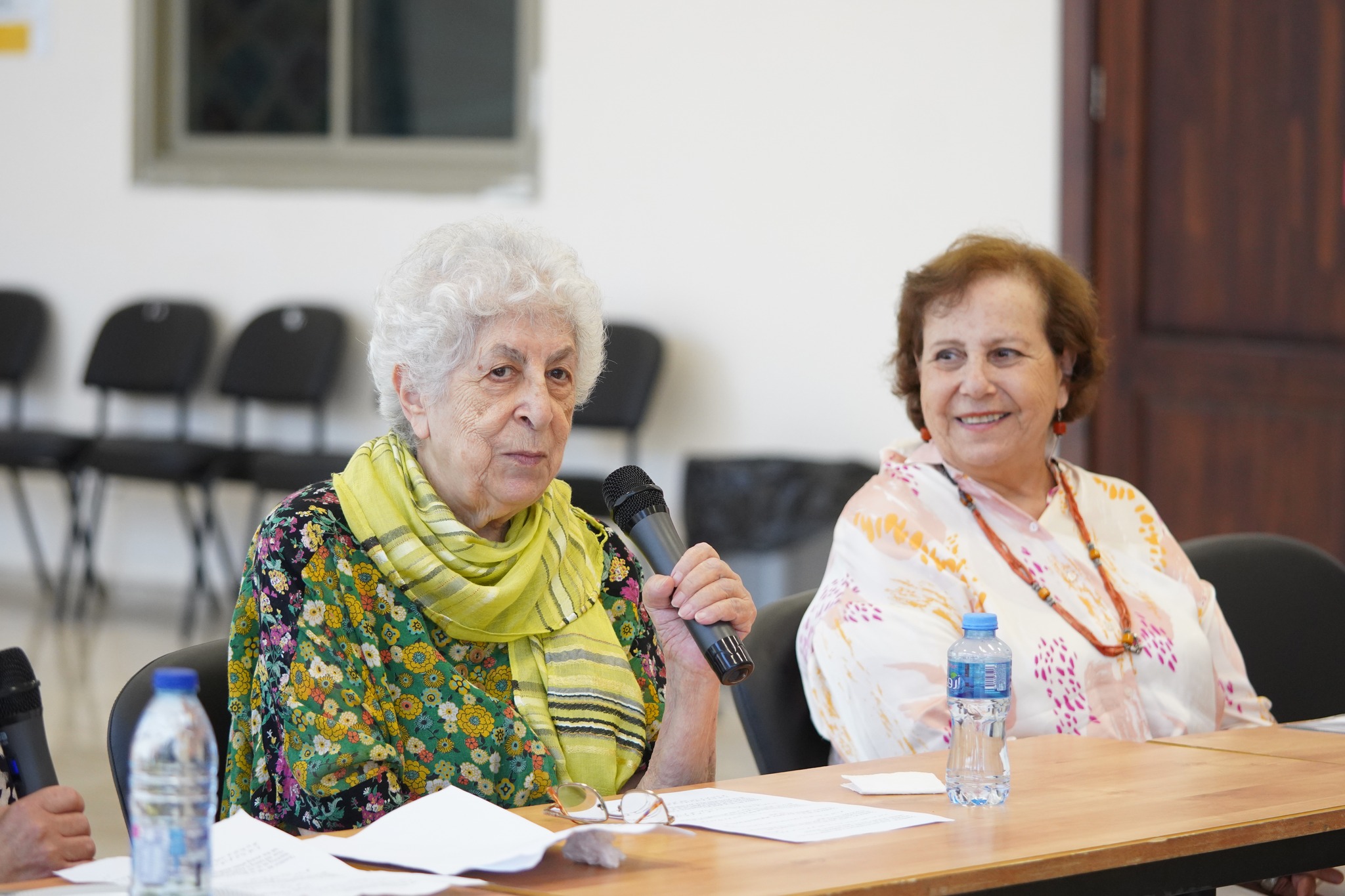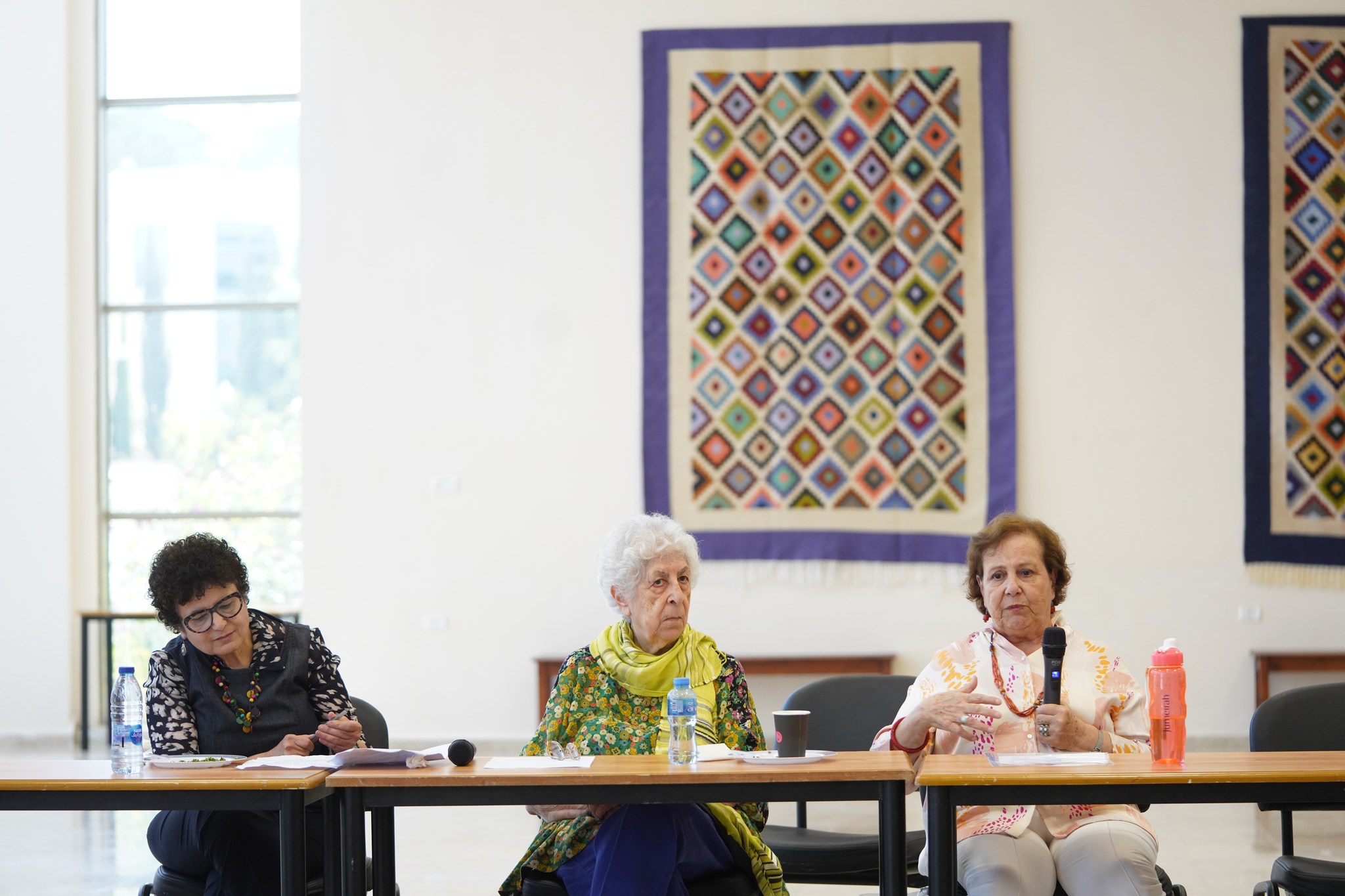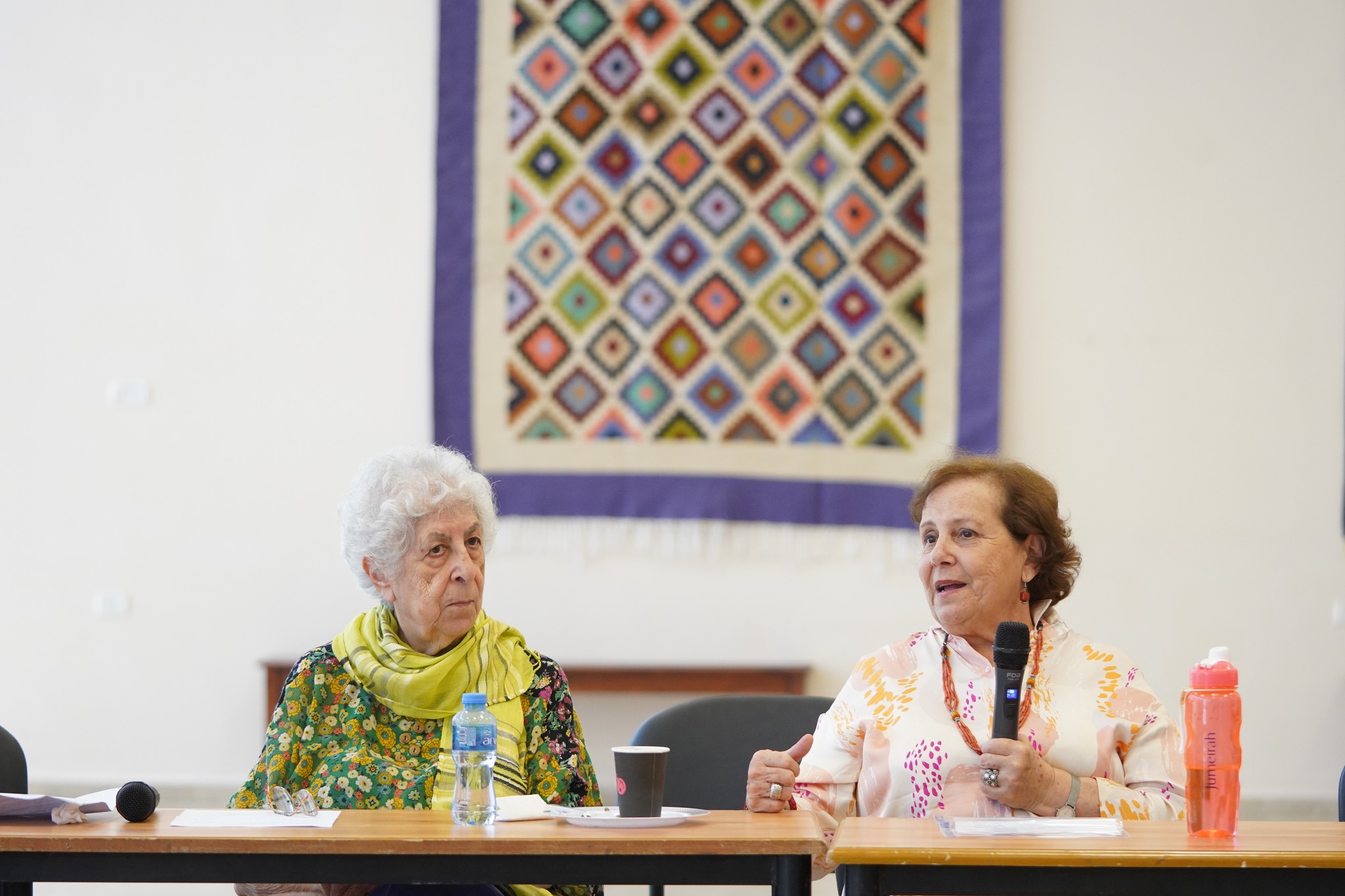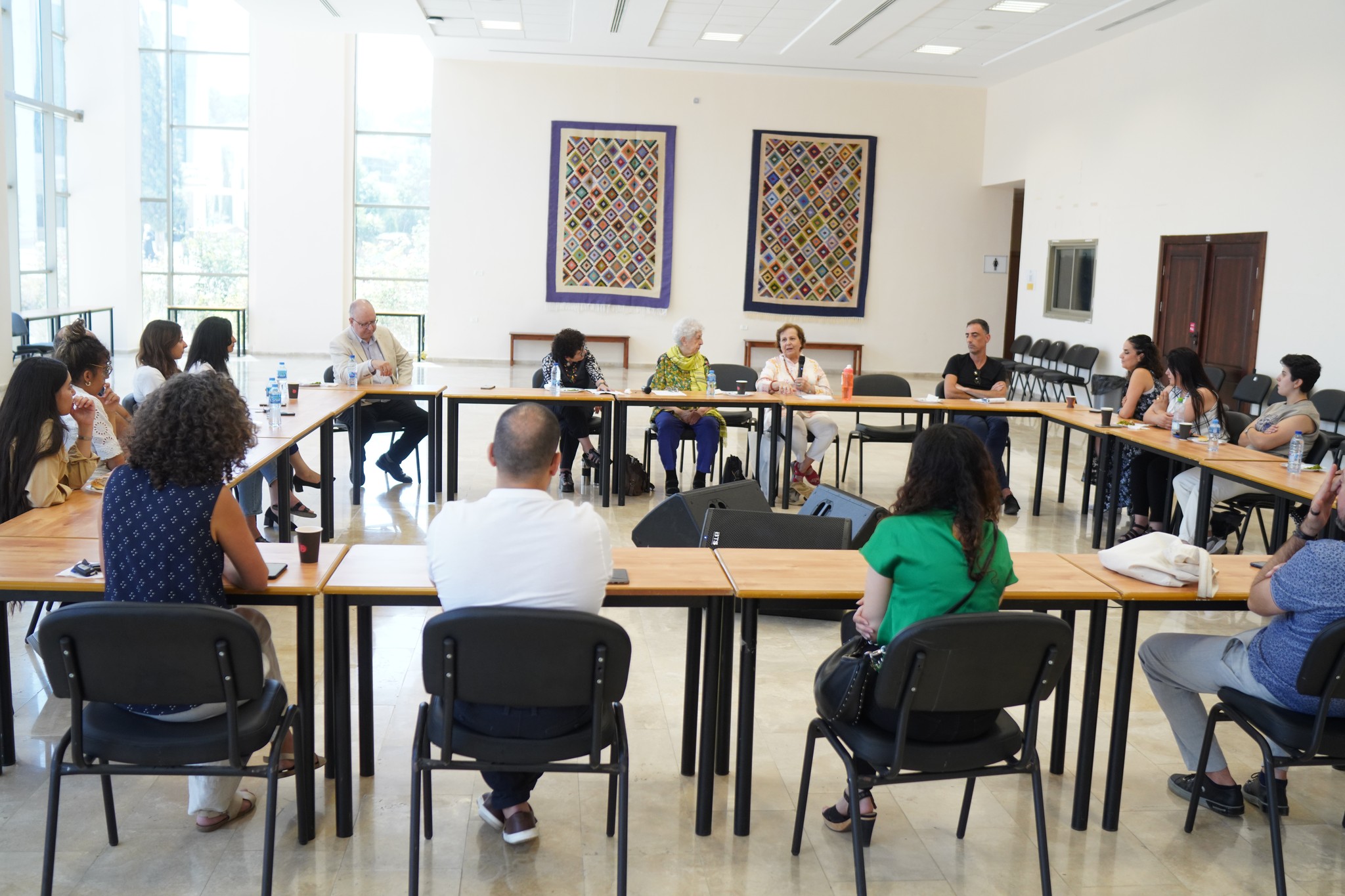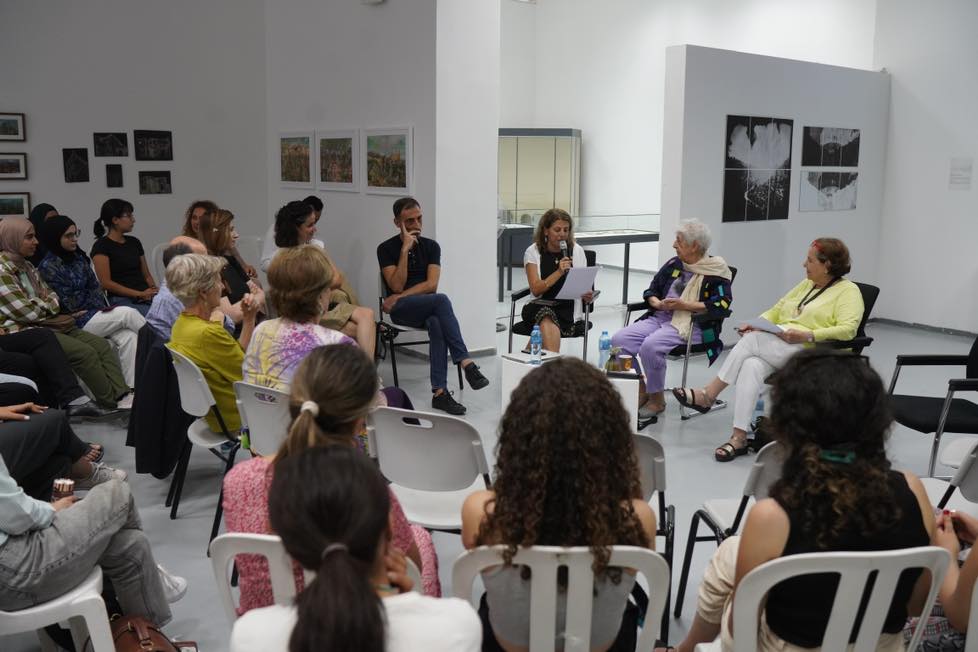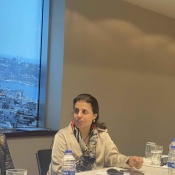Birzeit University hosts conversations with Samia Halaby
Birzeit University hosted two conversations with Samia Halaby, renowned Palestinian artist and pioneer of abstract painting. Titled “Art Teaching in Palestine,” the first conversation was organized by the Faculty of Art, Music and Design on Tuesday, July 25, 2023. The Birzeit University Museum hosted the second conversation, “Why Conversation?: A Journey between the past and present through art in/on Palestine,” on Thursday, July 27, 2023.
The first conversation featured Halaby; Rula Halawani, Palestinian photographer and faculty member in the Contemporary Visual Art bachelor’s program; and Vera Tamari, Palestinian lecturer of Islamic Art and Architecture at Birzeit University.
Halaby talked about the need to study the history of art as a discipline in order to understand the artistic scene today and the ways in which art is studied and taught. She elaborated, “The history of art was written by the west in order to assist them in building their civilization. As for us, we should view our history as the history of humankind and think of the future as the future of humankind.”
Later, Halabi talked about art and activism as well as her own vision with regards to art and the Palestinian cause. She asserted. “I love Palestine, and the Palestinian cause is central to my life and art. I cannot depict Palestine solely through abstract art. If I want to paint the politics I advocate for, I will not resort to impressionism. In contrast, my artwork will be explicit and without disguise.”
In addition to Halaby and Tamari, the second conversation featured Dr. Rana Barakat, director of the Birzeit University Museum and associate professor in the Faculty of Arts.
Halaby talked about the status of art nowadays and current art movements and conceptions. She elaborated, “My analysis of the world takes the historical materialism approach. When examining galleries for example, one will understand that they are a new invention and they serve the capitalist market. Because of this, we should strive to be free from art administrations, museums, galleries and critics.”
She added, “Historically speaking, art stems from the society. This is very different from art movements that advocate for self-expressionism and individualism. To create art, we must look around to understand our societies and be part of it.”
When asked about changes in the Palestinian and international art scene, Tamari remarked, “So much has changed in the last 40 years in terms of what and how we should create art as well as in terms of methods of expression. Nowadays, impositions are economic-oriented, requiring artists to know how to market and sell their artwork. This was not the case in Palestine in the seventies and eighties, as Palestinians used to create art out of a personal desire to represent the Palestinian cause, as opposed to viewing it as a commodity for the market.”
The conversations concluded with an open discussion, where Halaby engaged with the inquiries of the attendees. The events were attended by university students, professors and employees.

